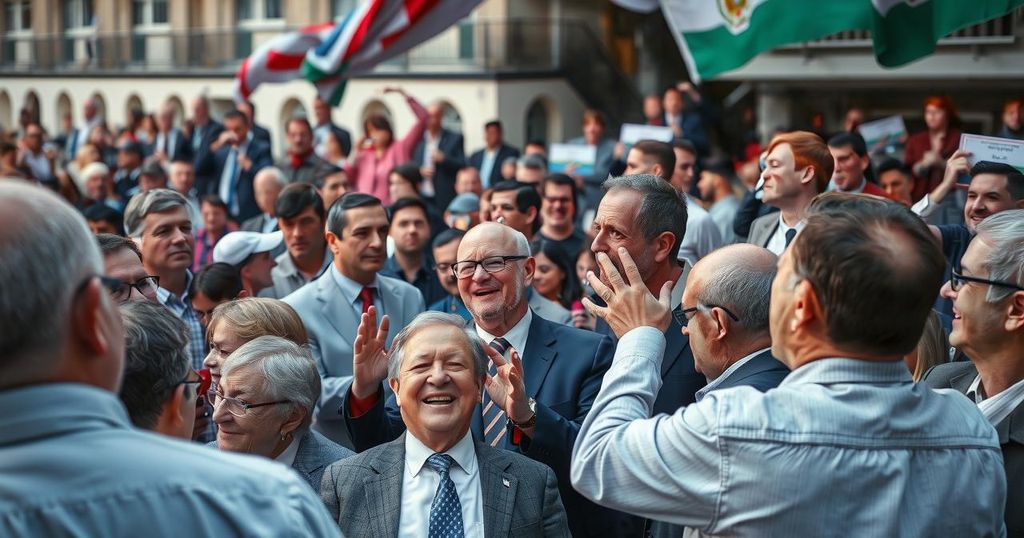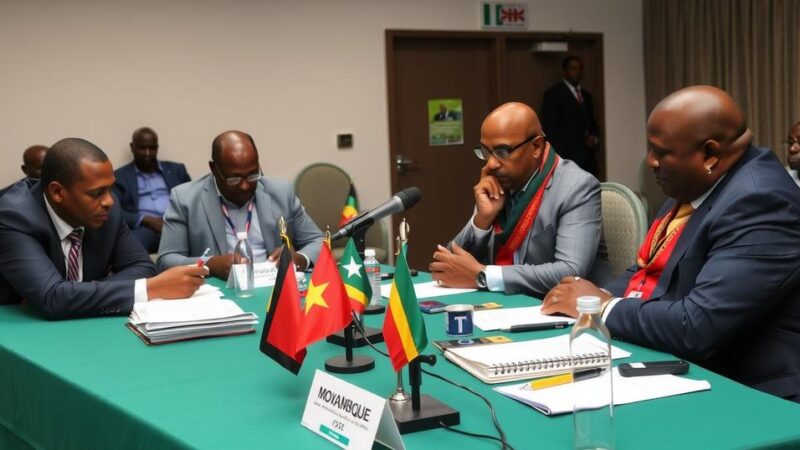Georgia’s recent elections resulted in claims of victory by the ruling Georgian Dream party amidst widespread allegations of voter fraud, leading to significant disputes regarding the legitimacy of the election’s outcome. Exit polls indicated the opposition may have received more votes, while the Central Election Commission reported a significant lead for Georgian Dream. The situation raises critical questions about the integrity of democratic processes in the country, accentuated by incidents of violence and intimidation during the elections.
On October 26, 2024, citizens in Georgia participated in significant elections, marking the most consequential political event since 2003. The ruling party, Georgian Dream (GD), asserted a decisive victory amid allegations of voter fraud raised by opposition officials and observers. Prime Minister Iralki Kobakhidze proclaimed a “landslide” win against results from pro-opposition exit polls, which suggested that GD secured only 40.9% to 42% of the votes, while the opposition combined received 51.9% to 48%. Preliminary results from Georgia’s Central Election Commission (CEC) reported GD receiving 56% of the vote after 99% of districts had been counted.
The integrity of these results has been widely challenged, with accusations of the CEC being aligned with the ruling party and high levels of election violence undermining credibility. A coalition of election monitors, My Vote, indicated that the reported voter fraud and violence severely compromised the trustworthiness of the CEC’s preliminary results. Notably, opposition representatives identified substantial variances between official data and their independent findings. Prime Minister Kobakhidze dismissed the fraud allegations but acknowledged the need to address some irregularities occurring during the election period. Conversely, former EU Ambassador Eklund criticized the process, citing “Voter intimidation…up to and on election day severely undermined the process.”
This year’s global election landscape is notably active, with CNN citing at least 70 countries participating in elections, a reminder of the significance of democratic engagement. However, the trend also reveals troubling instances of electoral violence and declines in democratic standards, as observed in countries like Venezuela and within the United States. Georgia’s situation exemplifies this concerning pattern. As elections remain pivotal to democracy, it is essential for both nations and individuals to demand accountability for any violence that threatens electoral fairness. The role of election observers and NGOs is crucial in safeguarding the elections’ integrity worldwide, making it imperative that independent investigations into Georgia’s fraud allegations are pursued.
The elections in Georgia are set against a backdrop of political tension, with the ruling party, Georgian Dream, facing significant opposition amid accusations of electoral misconduct. Having been in power for over a decade, Georgian Dream’s connection to Russia and its critical approach to Western influences have raised concerns among opposition groups and civil society. As Georgia navigates its aspirations for closer ties with the European Union, the socio-political dynamics complicate the electoral landscape, especially after the implementation of controversial laws seen as undermining democracy. This context is crucial to understanding the tumultuous nature of the recent elections and the subsequent disputes.
In conclusion, the recent elections in Georgia have been marred by serious allegations of voter fraud and violence, challenging the legitimacy of the ruling party’s claims of victory. With substantial public dissent against the conduct of the elections and a contentious relationship with international observers, it becomes critical for independent investigations to ascertain the reality of the allegations. Georgia’s political climate remains fragile as it grapples with the implications of its internal conflicts and external relations, particularly regarding its ambitions for European integration.
Original Source: theowp.org







